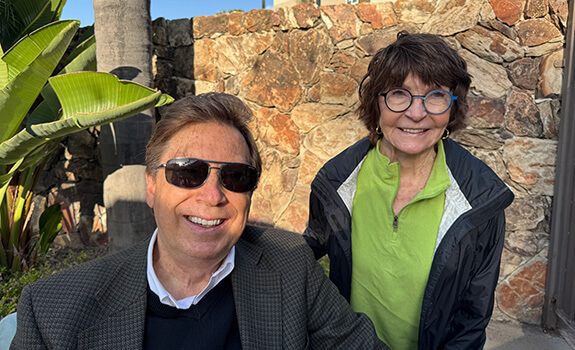May 15, 2025
Walking Into the Future


By Dale Bredesen, M.D., Chief Science Officer for Apollo Health
Fifteen years ago, staring at the large whiteboard in my office and trying to figure out what we could do about Alzheimer’s disease, I had the idea that we should try addressing many of the molecular pathways we had been researching, all at once, instead of pursuing the usual one-drug-one-pathway approach. Essentially the idea was to treat Alzheimer’s as a synaptic network insufficiency, by defining the various molecular players in the network, then addressing each one optimally. We were so fortunate to raise some support for a preliminary clinical trial to test this notion, but then our proposed trial was nixed by the IRB that must approve clinical trials — the IRB felt that addressing multiple factors at once would not allow us to determine “which factor” is the critical therapeutic target (as if there is only one!). While I was trying to figure out what we could do about this rebuff, I was contacted by a woman who asked if I would see her friend, who had been diagnosed with Alzheimer’s and was at risk for suicide. I explained that our trial had been rejected, and that I had not seen human patients for 20 years, but that I could discuss the approach we had proposed, and her friend could take the ideas back to her physician on the East Coast.
So it was that in April of 2012 I met with this woman at the Buck Institute for Research on Aging, and we spent over two hours going over the various pathways and plans we had had for the trial. She took copious notes since she was having memory problems. When she left to return to her physician back home, I did not think I would ever hear from her again. But three months later, I received a call at home on a Saturday, and she told me that she had followed the recommendations closely, and her memory had improved to where it had been decades earlier. She was sharp once again.
That was Patient Zero, Judy Benjamin, and her diligence and persistence have not only allowed her to avoid cognitive decline for 13 years and counting, but have helped point the way to helping the many others in need. Since her visit to the Institute in 2012, great progress has been achieved: thousands have gone on the ReCODE Protocol, and we have published the first examples of the reversal of cognitive decline:
Reversal of cognitive decline: A novel therapeutic program
Reversal of cognitive decline in Alzheimer’s disease
Reversal of Cognitive Decline: 100 Patients
A roadmap for treatment:
Next generation therapeutics for Alzheimer’s disease
Precision Medicine Approach to Alzheimer’s Disease: Rationale and Implications
A successful proof of concept trial:
Precision Medicine Approach to Alzheimer’s Disease: Successful Pilot Project
Inspirational stories of success:
The First Survivors of Alzheimer’s: How Patients Recovered Life and Hope in Their Own Words
The first sustained improvements for over
a decade:
Four books:
Amazon’s Alzheimer’s Best Sellers
And we are nearly finished with a randomized controlled trial at six sites around the country:
Evanthea Dementia Reversal Trial
There are new biomarker blood tests that warn us and tell us where we stand as we improve:
Tests that identify the various contributors to cognitive decline:
Assess your cognition now:
Meals that support cognitive health:
KetoFLEX 12/3 Meals by Trifecta Nutrition
All are designed to help us avoid and reverse cognitive decline. We are entering an era in which dementia is truly optional.





